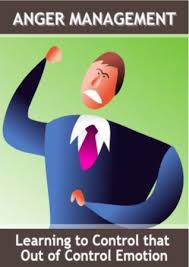
Anger Management Activities and Exercise To Help Calm You
There are lots of ways that you can learn to manage your anger, even when it seems like a totally overwhelming emotion. If you have anger management issues, you can get help through anger management activities and exercise programs that have been created especially to help you discover various outlets for your anger, and help you to calm down in an appropriate way.
Teenagers in particular will benefit from these kinds of anger management classes. Adolescence is a time when kids are starting to make some huge leaps in emotional maturity. While this is going on, their emotions can seem to be unmanageable and they can't seem to figure out what to do with them. Therefore, they often end up responding in anger to just about every emotion they experience.
That's why teens will benefit greatly from anger management activities and exercise plans that will teach them an appropriate outlet for their energy. It will also help them to become more focused so that they can learn to deconstruct their problems into manageable compartments. This helps them discover the emotions that lie below the anger and manage them appropriately.
A popular and effective type of anger management activity and exercise program is yoga. This practice teaches you to perform a variety of postures that focus on methods of relaxation and deep breathing techniques. These skills will teach you to focus your thoughts, release negative energy and calm yourself.
These are valuable skills that can be carried over into your everyday life. If you feel your anger starting to rise, just breathe deeply and concentrate on relaxing in order to overcome the emotion. You can also try repeating words and phrases that will help you calm down. Something like, "It's all good," or whatever works for you.
Another approach to anger management is to alter negative thoughts that you might be voicing in your head. Turn them into funny images and thoughts, which will replace the feelings of anger. For example, if you tend to think of someone as a jerk whenever you are angry with them, translate that word into a ridiculous mental image, like maybe a stick of beef jerky. This will give you a little bit of time and distance to help you calm down. The more ridiculous the imagery, the easier it will be to lose your anger.
Anger management activities and exercises can also be more cognitive in nature. This involves a process of retraining your thoughts so that you can rationally assess the situation and possible solutions before speaking your mind.
Posted by Kim